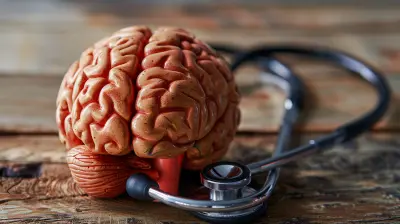Omega-3 and Brain Health: A Vital Connection
11 August 2025
Introduction
Ever wondered why fish is often called "brain food"? Well, it’s all thanks to Omega-3 fatty acids! These essential fats are like premium fuel for your brain, keeping it sharp, focused, and resilient against age-related decline.
In today’s fast-paced world, where brain fog, stress, and memory problems are becoming all too common, taking care of our cognitive health has never been more important. And guess what? Omega-3s might just be the missing piece of the puzzle.
So, let’s dive into the fascinating connection between Omega-3 and brain health, and why you should start paying attention to what’s on your plate! 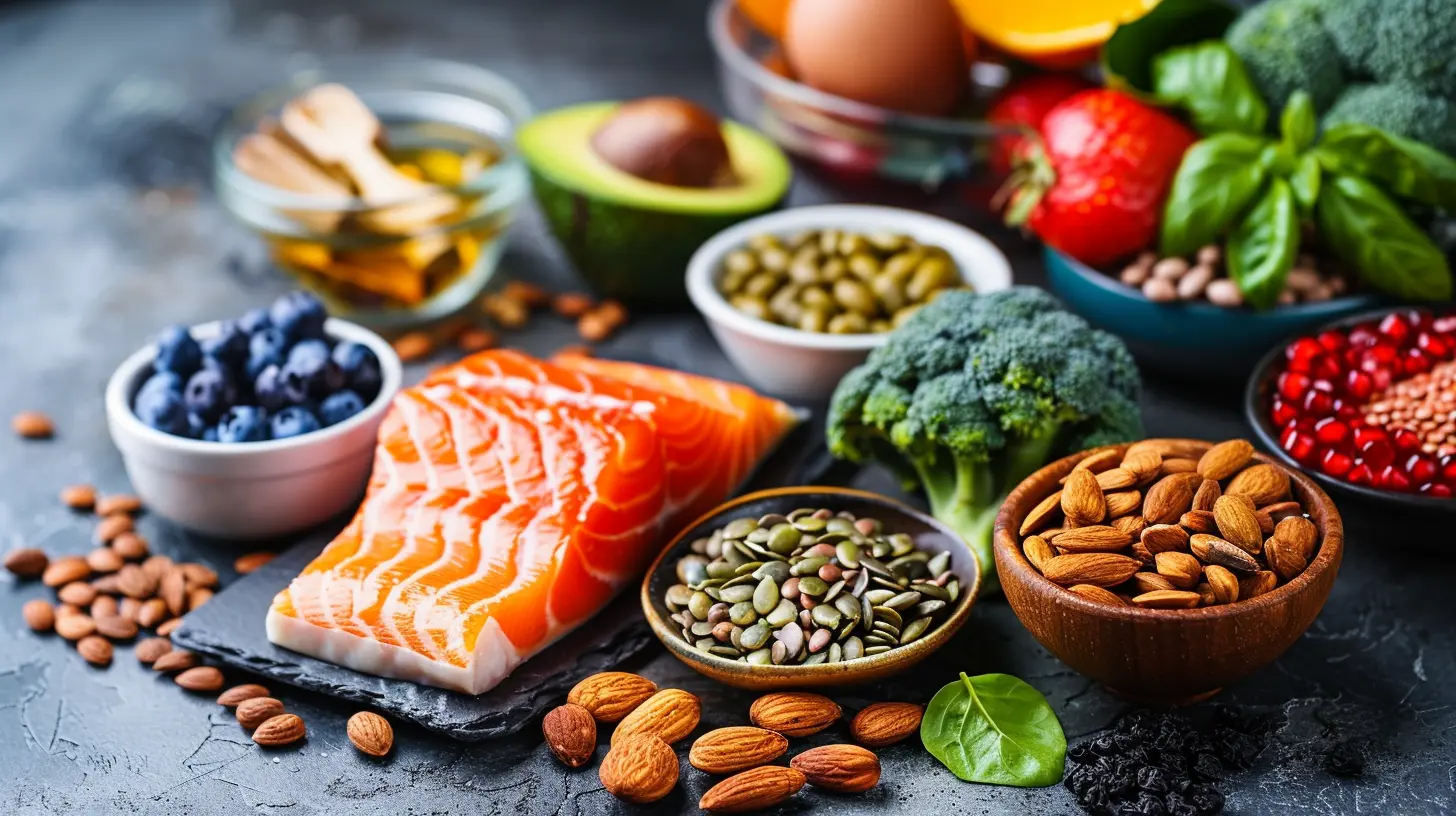
What Are Omega-3 Fatty Acids?
Omega-3s are a type of polyunsaturated fat that our bodies can't produce on their own. That means we need to get them from our diet or supplements. They come primarily in three types:- DHA (Docosahexaenoic Acid) – The superstar for brain function and cognitive development.
- EPA (Eicosapentaenoic Acid) – Known for its anti-inflammatory properties and mood-supporting benefits.
- ALA (Alpha-Linolenic Acid) – Found mostly in plant-based sources and needs to be converted into DHA and EPA in the body (which isn’t very efficient).
Of these three, DHA and EPA are the most crucial for brain health. They are highly concentrated in the brain and play a significant role in maintaining cognitive function and emotional well-being. 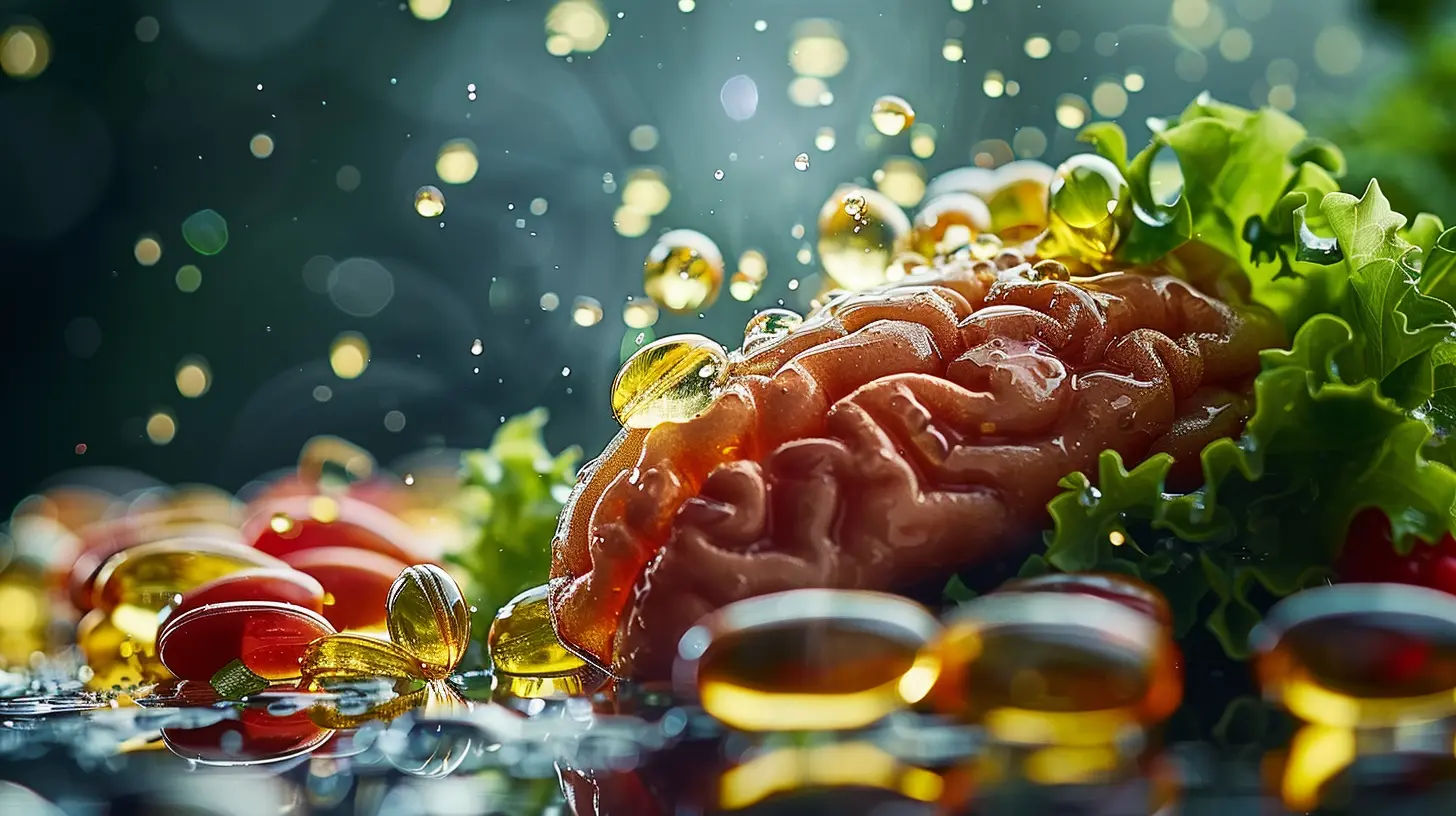
The Role of Omega-3 in Brain Structure
Your brain is practically made of fat—about 60% of it, to be exact! And a large chunk of that fat is DHA. This essential fatty acid is a major structural component of brain cell membranes, ensuring that neurons communicate effectively.Think of DHA as the "oil" that keeps the brain's engine running smoothly. Without enough of it, your cognitive function might start stalling—leading to memory issues, slow thinking, or even mood disturbances.
Studies have shown that people with higher DHA levels tend to have better cognitive performance, improved memory, and a reduced risk of neurodegenerative diseases like Alzheimer’s. 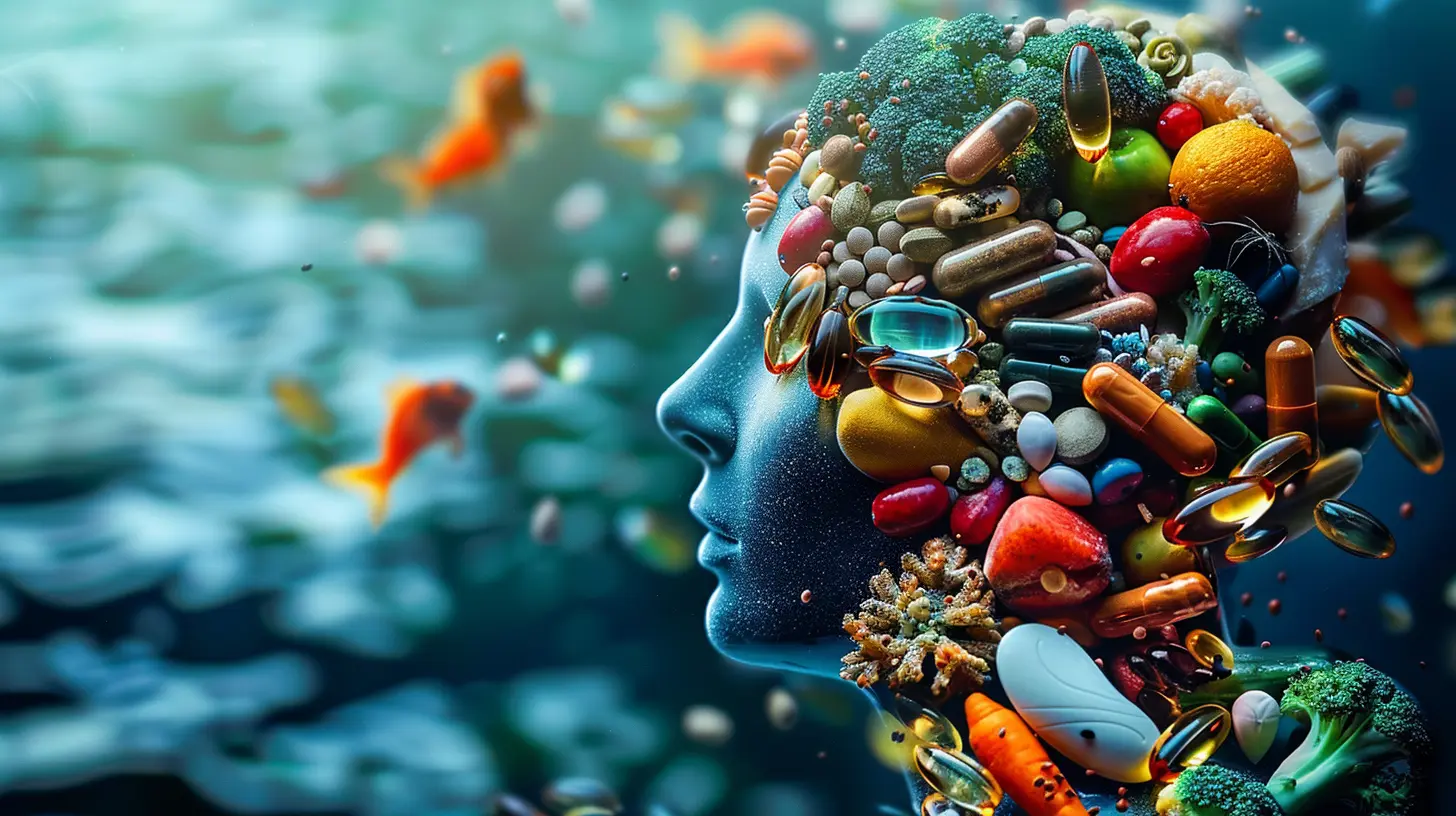
Omega-3 and Cognitive Function
Have you ever walked into a room and forgotten why? Or struggled to recall a name that was just on the tip of your tongue?Cognitive function isn't just about intelligence—it’s about memory, focus, and mental clarity. And Omega-3 fatty acids play a crucial role in keeping those cognitive gears well-lubricated.
Memory and Learning
DHA is particularly important for memory and learning. It enhances synaptic plasticity, which is just a fancy way of saying it makes it easier for brain cells to communicate. This leads to better information retention and faster recall.Studies have even found that people who consume more Omega-3s tend to perform better on memory tests and have a lower risk of age-related cognitive decline.
Focus and Mental Clarity
Ever find yourself zoning out during an important task? That could be a sign of Omega-3 deficiency.EPA and DHA help regulate neurotransmitters like dopamine and serotonin, which influence focus and concentration. Low levels of these fatty acids have been linked to attention deficits and difficulties with mental clarity. 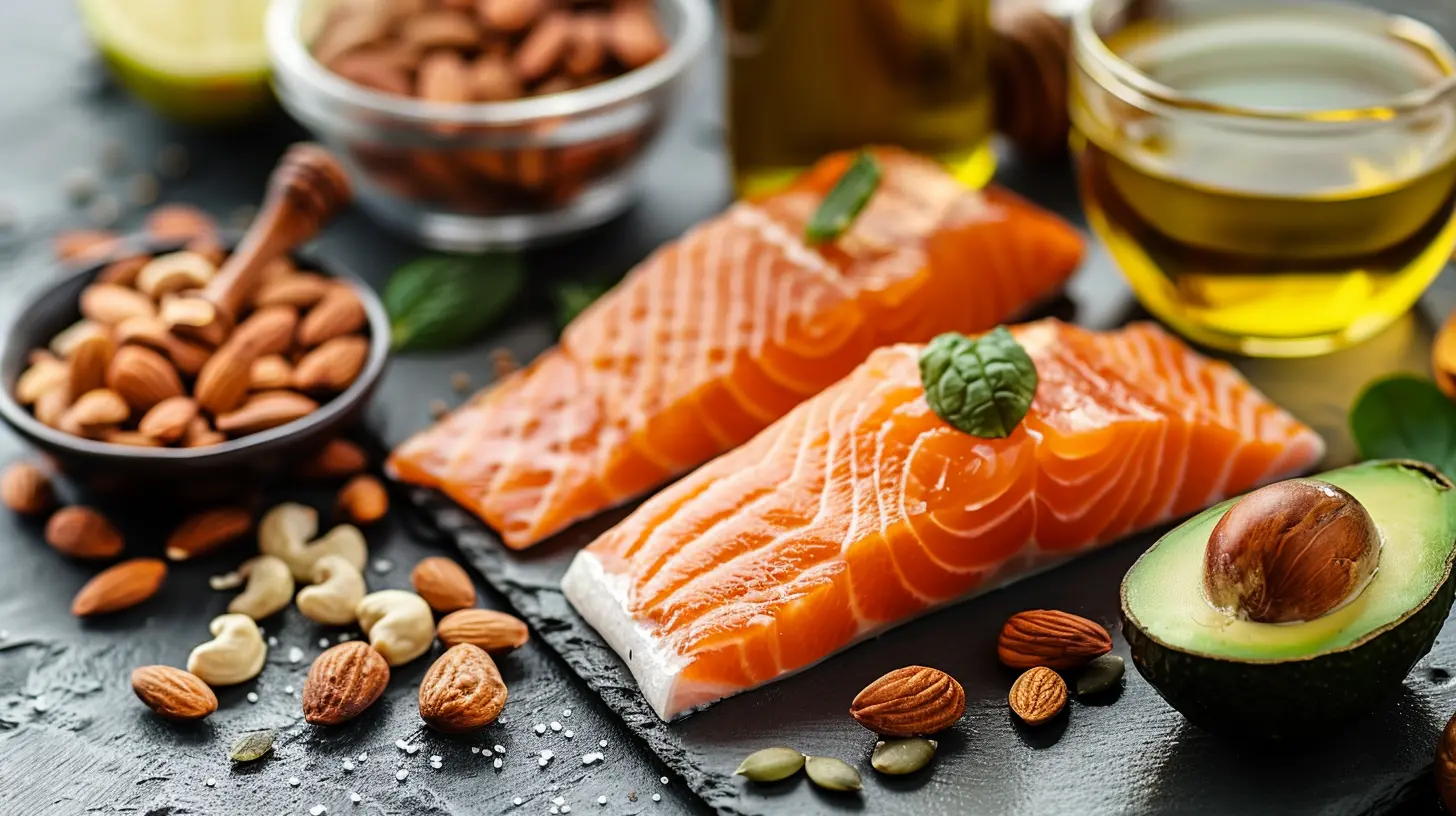
Omega-3 and Mental Health
Your brain and mood are deeply connected. If your brain isn’t functioning at its best, your emotions might take a hit too. Fortunately, Omega-3s can offer a natural way to support mental health.Depression and Anxiety
Feeling down or overwhelmed? Omega-3s might be able to help.EPA, in particular, has been shown to have powerful anti-inflammatory effects that can help combat depression. Studies suggest that people who consume more Omega-3s tend to have lower rates of mood disorders, including anxiety and depression.
One study even found that Omega-3 supplementation was as effective as certain antidepressants in reducing symptoms of depression! Now, that’s pretty impressive.
Stress and Brain Resilience
Chronic stress can wreak havoc on your brain, affecting everything from memory to emotional regulation. Omega-3s help by reducing inflammation in the brain and promoting the production of neurotransmitters that support a balanced mood.So, if you find yourself constantly stressed or overwhelmed, adding more Omega-3s to your diet might be a game-changer.
Omega-3 and Age-Related Cognitive Decline
We all want to stay sharp as we age, right? Well, Omega-3s might be one of your best defenses against cognitive decline.Protecting Against Alzheimer’s and Dementia
Several studies have linked higher levels of Omega-3 intake to a reduced risk of Alzheimer’s disease and other forms of dementia. DHA, in particular, helps protect brain cells from damage and supports overall brain function.In fact, researchers have found that people with higher DHA levels have a significantly lower risk of developing Alzheimer’s compared to those with lower levels.
Slowing Brain Aging
Aging is inevitable, but losing your mental sharpness doesn’t have to be. Omega-3s can help slow down the aging process in the brain by reducing inflammation, protecting neuron function, and improving blood flow.It's like giving your brain an anti-aging elixir—minus the fancy potion bottles.
Best Sources of Omega-3
Alright, so we know Omega-3s are essential for brain health. But where can you get them?Fatty Fish (The Best Source!)
- Salmon- Mackerel
- Sardines
- Trout
- Tuna
These fish are loaded with DHA and EPA, making them the best natural sources of Omega-3s.
Plant-Based Sources
- Chia seeds- Flaxseeds
- Walnuts
- Hemp seeds
- Algal oil (a great vegan alternative to fish oil)
While these contain ALA, which is less efficient in converting to DHA and EPA, they’re still great additions to a balanced diet.
Omega-3 Supplements
If you’re not a fan of fish or struggle to get enough Omega-3s through food, supplements can be a good alternative. Options include:- Fish oil capsules – High in DHA and EPA.
- Krill oil – Easier to absorb than fish oil and packed with antioxidants.
- Algal oil – A plant-based alternative, perfect for vegetarians and vegans.
Just make sure you choose a high-quality supplement with proper EPA and DHA content for maximum benefits!
How Much Omega-3 Do You Need?
The recommended daily intake varies, but here’s a general guideline:- For general brain health: 250-500 mg of combined DHA and EPA per day.
- For mental health support: 1,000-2,000 mg per day (consult your doctor first).
- For cognitive decline prevention: Around 1,000 mg per day.
If you're getting your Omega-3s from food, aim for at least two servings of fatty fish per week.
Final Thoughts
Your brain works hard for you every single day—it’s only fair that you give it the right nutrients to thrive! Omega-3 fatty acids are like premium brain fuel, supporting memory, focus, emotional health, and long-term cognitive function.So, whether it’s through a delicious salmon dinner, a handful of walnuts, or a high-quality supplement, make sure you’re getting enough Omega-3s. Your brain will thank you for it!
all images in this post were generated using AI tools
Category:
Brain HealthAuthor:

Angelo McGillivray
Discussion
rate this article
1 comments
Ingrid Holland
Great article! It’s inspiring to learn how Omega-3 can positively impact brain health. Thank you!
August 24, 2025 at 4:11 AM

Angelo McGillivray
Thank you so much for your kind words! I'm glad you found the article inspiring.
